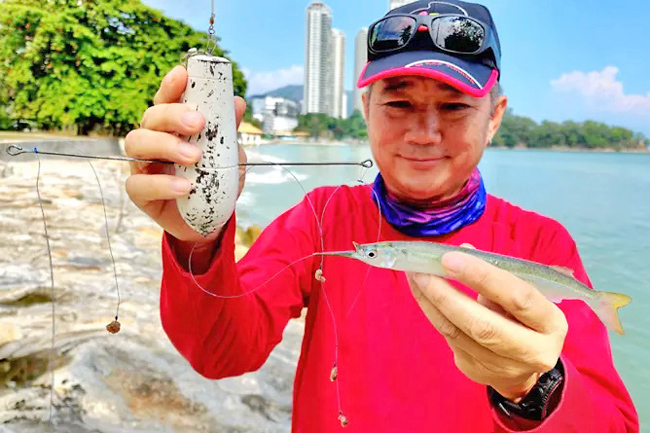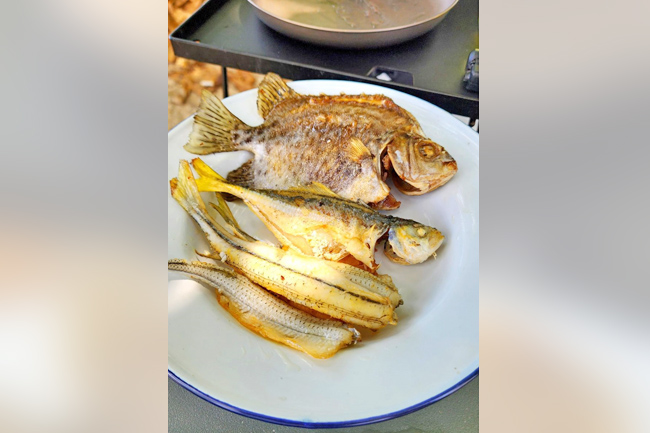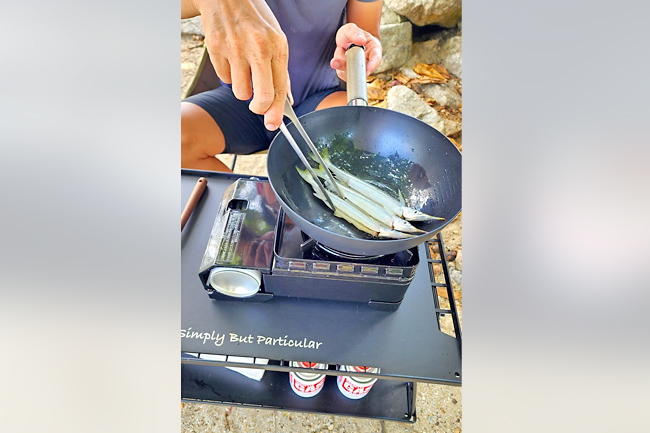ANN/THE STAR – Fish cooked right after being caught is the most flavourful.
Market-bought or restaurant-served fish often undergoes chilling or freezing, which can alter the muscle fibers and texture. Even refrigeration draws out natural moisture, affecting the quality.
So, if you’re spending a day at the beach and have some fishing and cooking skills, try frying up your fresh catch. It doesn’t get any fresher than that!
At most beaches, catching a prized grouper or siakap might be difficult, so manage your expectations. However, even a palm-sized croaker (gelama) can surprise you with its flavour and texture – thanks to its sheer freshness.
The ubiquitous catfish (ikan duri or belukang) might not be ideal, as its thick layer of slime makes it hard to clean without a proper kitchen sink, even though its meat is juicy and fatty.
If you’re near rocky areas, you might catch halfbeaks, needlefish, spotted scats or Java rabbitfish.
Your success depends on your fishing skills; with a bit of luck, you can quickly catch several small fish to cook.
Cooking at the beach requires a bit of planning.



You’ll need to scale and gut the fish, so bring a small basin and plenty of fresh water.
While seawater can be used if it’s clean, a jerry can with five to 10 litres of fresh water is ideal for cleaning your fish and washing up afterwards.
Consider using a gas stove with small butane canisters – they light up instantly and can accommodate a BBQ mesh grill, griddle or frying pan.
However, beaches tend to be windy, so ensure you have a stove windshield or some other method to protect the flame from gusts, which can cause uneven heat distribution.
Alternatively, invest in a camp stove with built-in wind protection, which often increases flame intensity when the wind blows.
Don’t forget to pack plenty of kitchen paper towels or napkins – not regular tissue paper.
Before frying, it’s crucial to pat the fish dry, including inside the gut cavity. Putting a wet fish in a hot frying pan, especially on a small camp stove, can result in an explosive reaction.
Paper towels are also handy for wiping your plates, pans and utensils before packing them away to wash at home.
Consider bringing folding camp furniture, particularly a table and chair for the designated cook.
If you place the stove directly on the sand, there’s a good chance your fish will end up with a “crunchy” texture from sand getting into the food.
Cooking small fish doesn’t take long; they cook quickly and remain juicy if not fried too crispy. – Lam Meng Tuck



















































